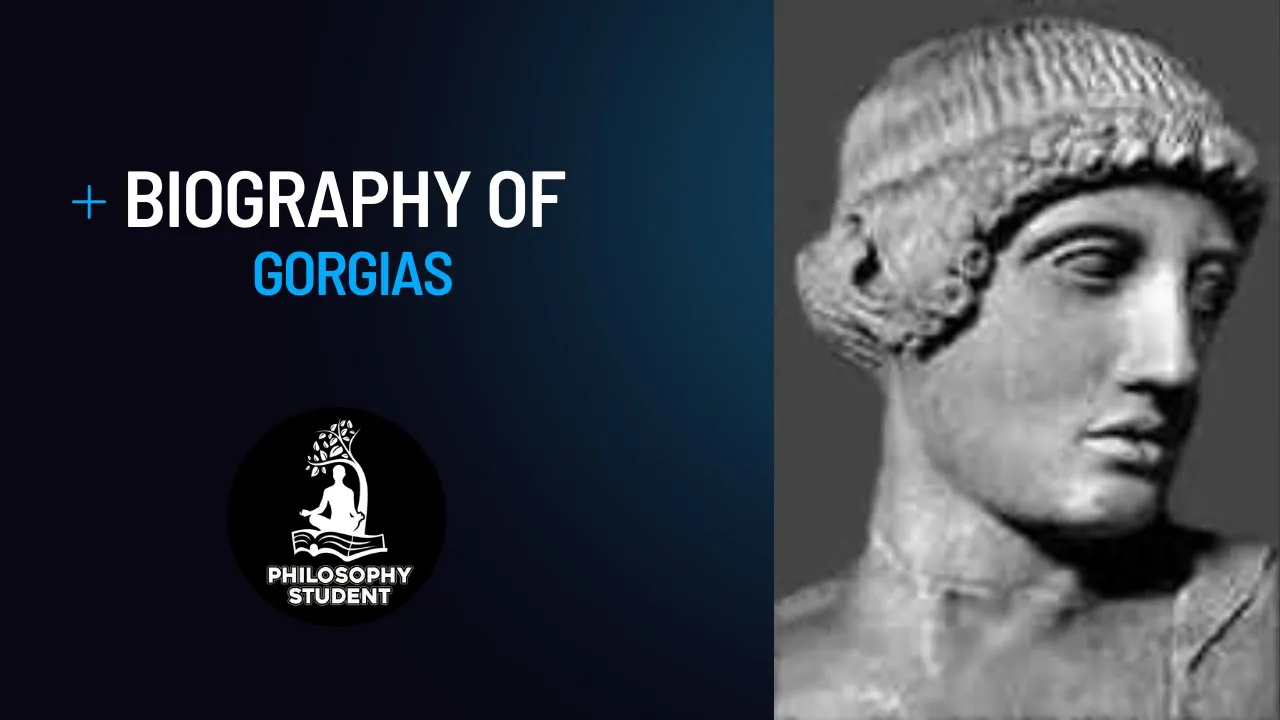Gorgias, with Protagoras, represents the first generation of Sophists, Pre-Socratic philosophers who used philosophy and rhetoric to acquire valid knowledge. Gorgias was born about 483 BC in Leontinoi, an eastern Sicilian colony allied with Athens. Gorgias had an uncle who was renowned as a physician and with whom he sometimes traveled. He likely studied under Empedocles of Acragas (c. 490– c.430 BC) and perhaps also under the rhetoricians Corax of Syracuse and Tisias.
Gorgias may have been active in politics. It is known that, in 427 BC, he was sent to Athens to seek Athenian protection against Syracusan aggression, and, after this year, he settled in mainland Greece, living in Athens, Larisa, and perhaps elsewhere as well. He made his living primarily as a teacher of rhetoric, Aristotle reporting that his most illustrious student was the rhetorician Isocrates. Gorgias’ was a stylistic influence on the rhetoric of the historian Thucydides, the playwright Agathon, and the physician Hippocrates.
Possibly credible legend has it that Gorgias lived to be 108 and profited handsomely from plying his trade as a rhetorician-philosopher. He reportedly died at Larissa, Thessaly, in 375. The philosophy of Gorgias is not extensively understood, largely because most of his writings have been lost. What survives was heavily edited and redacted by copyists who lived long after him. Moreover, while modern philosophers prize precise and economical prose, Gorgias employed elaborate and often ambiguous, similes and metaphors—and even puns —as well as apparent satire and sarcasm. He rarely made straightforward philosophical propositions but often wrote in ways verging on satire. Where most philosophers strive to create systemic consistency, Gorgias freely contradicts himself. For these reasons, some have characterized him as a Nihilist, though most modern commentators reject this characterization.
The most important philosophical work of Gorgias, On the Non-Existent, appropriately enough no longer exists. As far as can be concluded from mentions of and quotations from this work, it was an extreme skeptical view of epistemology, arguing that nothing exists, but even if something did exist, nothing can be known about it, and even if something can be known about it, knowledge about it cannot be communicated, but even if it can be, it cannot be understood. True objectivity, Gorgias seems to have argued, is impossible because the mind cannot be separated from the human being who possesses it.
In the nineteenth century, Georg Wilhelm Friedrich Hegel attempted to revive interest in and respect for the Sophists, including Gorgias. There is, however, a sound reason why the word sophistry came into the English language to describe the use of deceptive and fallacious argument. For many of Hegel’s contemporaries, the Sophists were in deep disrepute. Far more recently, however, post-Structuralist philosophers have been revisiting Gorgias and have found value in his extreme brand of skepticism when it comes to examining the value of language and its tenuous relation to truth.




































